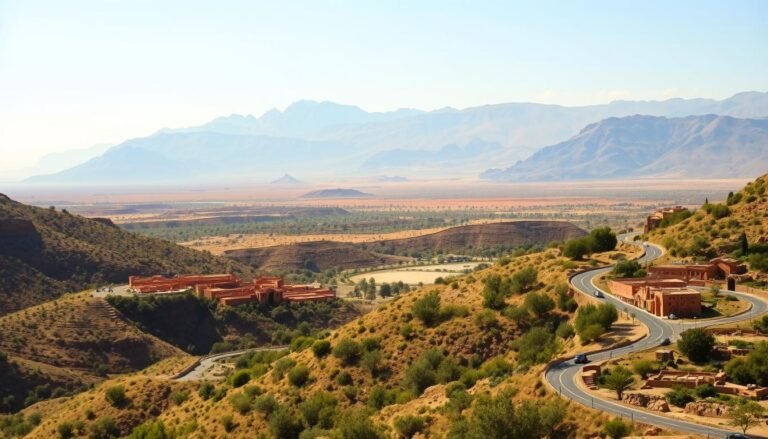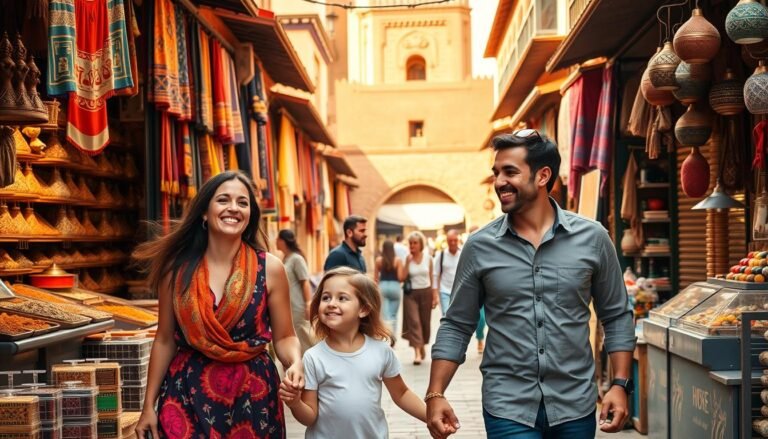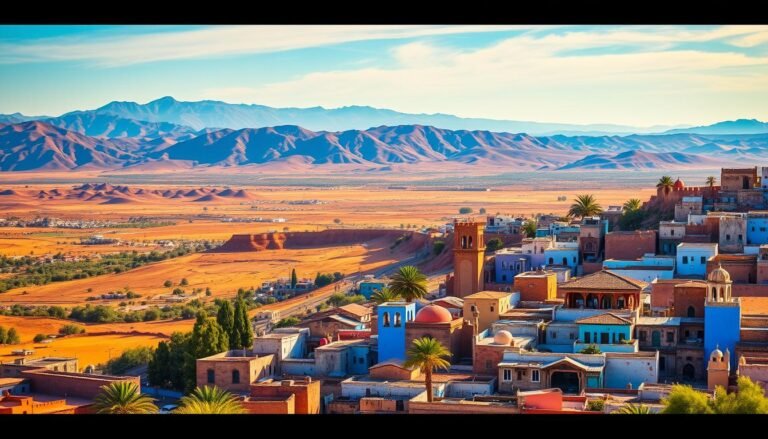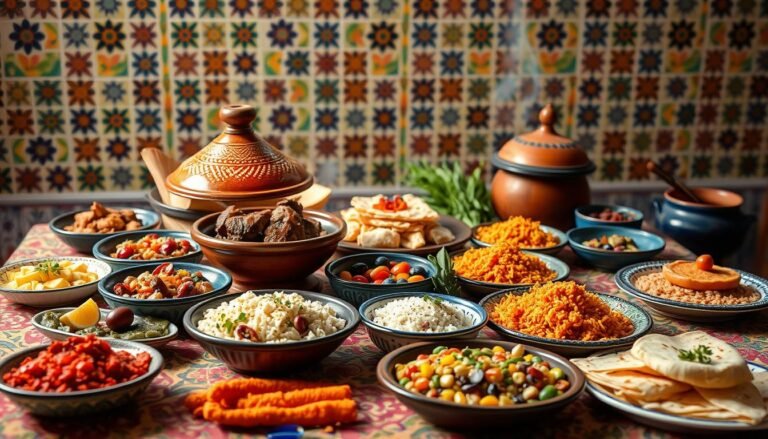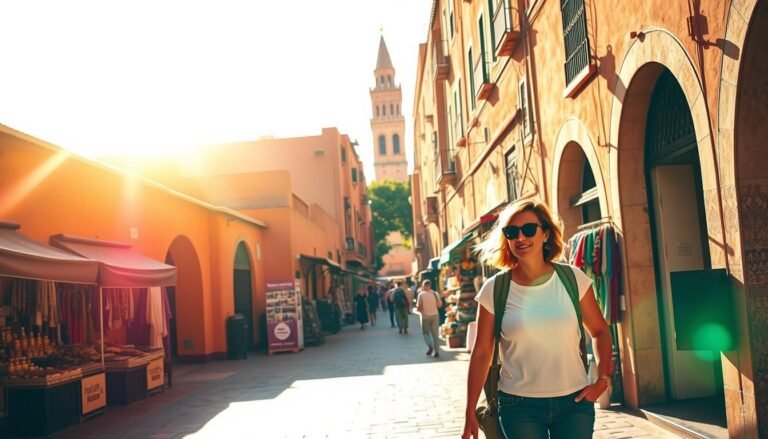Avoid These Mistakes When Visiting Morocco
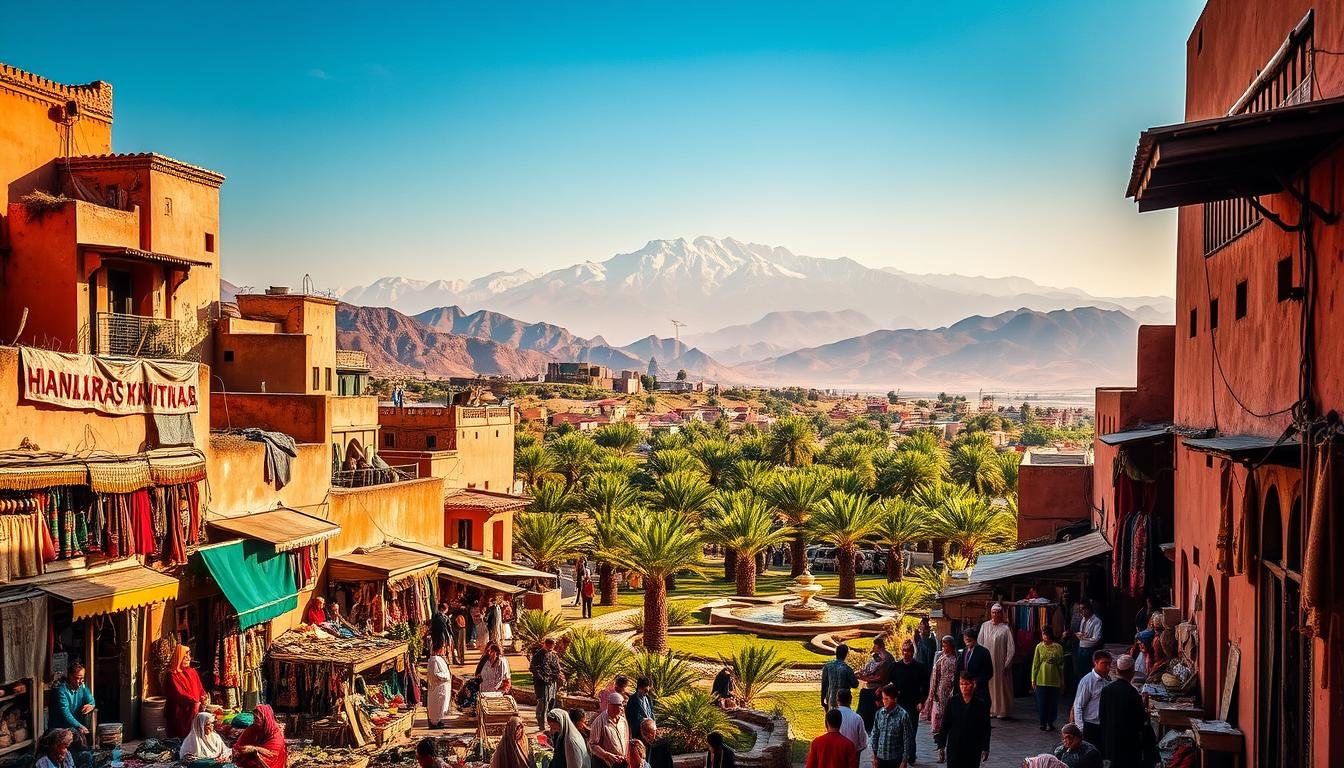
Imagine stepping into a world where the vibrant souks of Marrakech meet the serene beauty of the Sahara Desert. Morocco is a country that captivates the senses with its rich tapestry of Arab, Berber, European, and African influences. Yet, as enchanting as this destination is, it’s easy to stumble into common pitfalls that can turn your trip into a series of unnecessary challenges.
From navigating the bustling medinas to understanding local customs, Morocco offers a unique blend of cultural and practical experiences. However, it’s the unexpected mistakes that can often overshadow the beauty of this incredible country. Whether it’s misunderstanding the local currency or misjudging the best way to travel, these oversights can quickly dampen your adventure.
But here’s the good news: most of these mistakes are avoidable. By taking the time to understand what lies ahead, you can embark on a journey that is not only smoother but also more rewarding. This guide is your roadmap to avoiding those common errors, ensuring that your trip to Morocco is nothing short of unforgettable.
So, let’s dive into the essential insights you need to know before you go. After all, the key to a life-changing travel experience is being prepared for the unexpected.
Key Takeaways
- Understand local customs and cultural norms to avoid unintended offense.
- Plan ahead for transportation, accommodation, and finances.
- Be prepared for diverse weather conditions and geographical challenges.
- Respect religious practices and dress codes when visiting sacred sites.
- Stay informed about local regulations and practical travel tips.
Cultural Faux Pas and Respect for Local Customs
Respecting local customs is key to a positive experience in Morocco. Understanding cultural norms helps visitors avoid misunderstandings and show appreciation for the country’s rich heritage.
Understanding Dress Codes and Modesty
Dressing modestly is essential, especially in conservative areas. Covering shoulders and knees is a sign of respect. Opt for loose-fitting clothing to blend in seamlessly with local customs.
Observing Religious Sites and Etiquette
Mosques are central to Morocco’s religious life. Non-Muslims are generally not allowed inside, except at the Hassan II Mosque in Casablanca. When visiting, dress modestly and remove your shoes at the entrance.
Using your left hand for eating or handing items is considered impolite. Always use your right hand to maintain cultural respect. These small gestures significantly impact how locals perceive your visit.
| Cultural Aspect | Guidelines |
|---|---|
| Dress Code | Cover shoulders and knees; opt for modest attire. |
| Mosque Etiquette | Remove shoes; dress modestly. Non-Muslims allowed only in specific mosques like the Hassan II Mosque. |
| Hand Usage | Use the right hand for eating, greeting, and transactions. |
By embracing these customs, visitors can foster mutual respect and enjoy a more authentic Moroccan experience.
Practical Money and Bartering Advice
Managing your finances wisely is crucial when exploring Morocco. From bustling souks to local shops, understanding the local approach to money will enhance your experience.
Carrying Small Bills and Managing Cash
In Morocco, cash is king. Many vendors and small shops only accept dirhams, and having small bills ensures smooth transactions. This is especially true in the souks, where change might be scarce. Carrying a mix of small and large denominations will make your shopping experience much easier.
How to Haggle Respectfully
Haggling is an art in Morocco, and it’s expected when shopping in the souks. Start your offer lower than the asking price, but remain respectful. Remember, the goal is to find a fair price that satisfies both you and the vendor. A friendly demeanor will go a long way in making the process enjoyable for everyone involved.
| Tip | Details |
|---|---|
| Carry Small Bills | Ensures easier transactions and proper change. |
| Respectful Haggling | Start low, negotiate politely, and aim for mutual satisfaction. |
| Understand Pricing | Know the market rates to negotiate fairly with vendors. |
By embracing these practices, you’ll navigate the souks with confidence and enjoy a more authentic experience. Remember, every interaction is a chance to connect with the culture and its people.
Avoiding Common Health and Safety Pitfalls
Staying healthy and safe in Morocco requires attention to a few key areas. While the country offers countless wonders, it’s the unseen challenges that can disrupt your journey. By understanding these potential issues, you can safeguard your well-being and enjoy a hassle-free experience.
Why You Shouldn’t Drink Tap Water
Drinking tap water in Morocco is a common mistake that can lead to serious health issues. The water supply often contains contaminants that can cause stomach troubles and other ailments. To stay safe, always opt for bottled or filtered water. This simple rule can make a significant difference in maintaining your health throughout your trip.
When it comes to hydration, choosing the right water is crucial. Avoid tap water for drinking, cooking, or even brushing your teeth. Instead, rely on reputable bottled water, which is widely available in stores and markets. This small adjustment can prevent unnecessary health risks and ensure a comfortable journey.
Staying Clear of Unsolicited Help
While many locals are genuinely friendly, some individuals may offer unsolicited help with the intention of receiving payment. This is particularly common in busy areas like medinas and souks. To avoid misunderstandings, politely decline any unwanted assistance and seek help only from trusted sources, such as your hotel staff or official guides.
By being mindful of your surroundings and cautious with strangers, you can navigate Morocco’s bustling streets more safely. Remember, it’s always better to err on the side of caution when dealing with unfamiliar situations.
| Health and Safety Tip | Recommendation |
|---|---|
| Tap Water | Avoid drinking tap water; use bottled or filtered water instead. |
| Unsolicited Help | Politely decline offers from strangers and seek assistance from trusted sources. |
| Hydration | Carry bottled water throughout the day to stay hydrated and safe. |
Transportation Tips and Navigating the Streets
Navigating Morocco’s vibrant cities and historic streets can be an adventure, but it requires some insider knowledge. Whether you’re exploring the bustling medinas or traveling between towns, understanding the local transportation norms is essential for a smooth journey.
Taxi Etiquette and Agreeing on Prices
In Morocco, taxis are a popular way to get around. Petite taxis are ideal for short trips within the city, while grand taxis are better for longer journeys between towns. Always agree on the fare before you start your trip, as most taxis don’t use meters. This simple step can save you from potential disputes and ensure a stress-free ride.
When haggling over fares, remember to stay polite and realistic. Start your negotiation with a lower offer, but be prepared to meet the driver halfway. Knowing the average prices for your route will help you negotiate more effectively. For example, a trip from a medina to a nearby restaurant might cost around 10-20 dirhams, depending on the distance.
| Transportation Tip | Details |
|---|---|
| Agree on Fares | Negotiate prices before starting your journey to avoid disputes. |
| Use Small Bills | Carry small denominations to ensure smooth transactions. |
| Know Your Route | Understand the distance and average fares to negotiate fairly. |
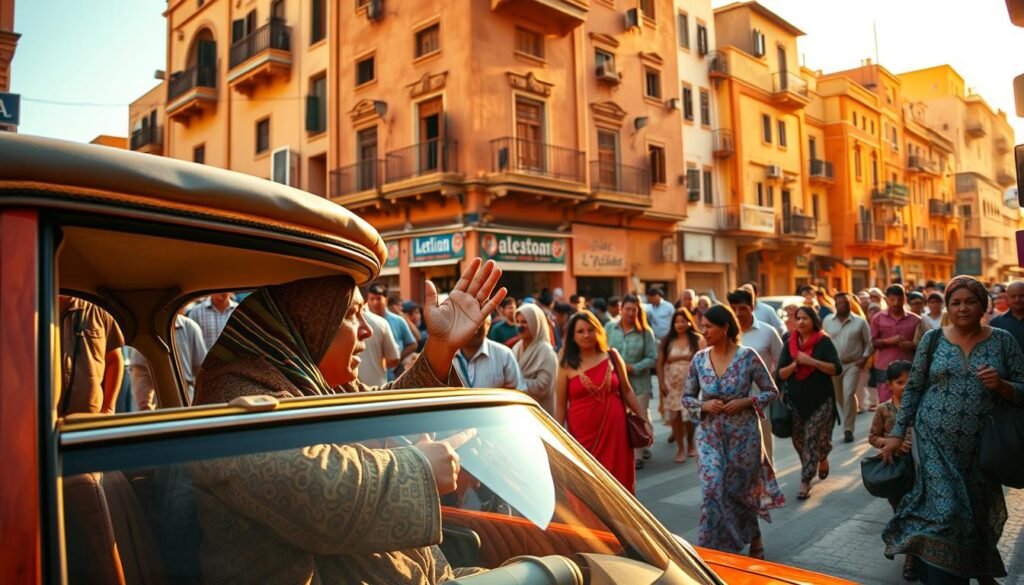
By embracing these transportation tips, visitors can navigate Morocco’s cities and streets with confidence. Whether you’re heading to a cozy restaurant in the medina or exploring a new town, being a mindful visitor will enhance your travel experience and create lasting memories.
Embracing Traditional Moroccan Accommodations
For a truly immersive journey, consider staying in a traditional Moroccan riad, where the essence of local culture and history await. Unlike modern hotels, riads offer an authentic experience, blending historic architecture with cozy comfort.
Choosing a Riad Over a Hotel
A riad is more than just a place to stay; it’s a gateway to Morocco’s rich cultural heritage. These traditional houses typically feature an open-air courtyard, adorned with intricate tiles and lush greenery, creating a serene oasis in the heart of bustling cities.
By choosing a riad, tourists can enjoy a more personalized and intimate experience. Many riads are family-run, offering a warm, welcoming atmosphere that makes visitors feel like part of the local community. This personal touch often includes traditional meals and insider tips on exploring hidden gems.
| Aspect | Riad | Hotel |
|---|---|---|
| Atmosphere | Intimate, traditional, serene | Modern, standardized |
| Service | Personalized, family-run | Formal, impersonal |
| Cultural Connection | Strong, immersive | Minimal |
Staying in a riad allows travelers to connect deeply with Morocco’s history and culture, making it an essential part of any authentic experience. Embrace this traditional accommodation to enhance your journey and create lasting memories.
Exploring Beyond the Tourist Hotspots
Morocco is a country with a rich tapestry of experiences waiting to be discovered beyond its famous cities. While Marrakech captivates with its vibrant souks and bustling medinas, the true essence of Morocco lies in its lesser-known towns and rural areas.
Discovering Morocco Outside of Marrakech
Traveling beyond Marrakech reveals a more genuine side of Moroccan culture. Consider visiting smaller towns like Chefchaouen or Taroudant, where the pace of life is slower and the atmosphere is more relaxed. These destinations offer a chance to connect with local persons who share stories and insights that aren’t found in typical travel guides.
Local souks in these towns provide unique shopping experiences, where you can find authentic goods at fair prices. Enjoying a traditional meal in a family-run restaurant is another way to immerse yourself in the local culture. These interactions often lead to memorable moments that enrich your travel experience.
| Aspect | Popular Cities | Lesser-Visited Towns |
|---|---|---|
| Cultural Immersion | Guided tours, crowded markets | Authentic local interactions, personalized experiences |
| Local Interaction | Brief encounters with vendors | Meaningful conversations with locals |
| Dining Experiences | Restaurants catering to tourists | Family-run eateries with traditional meals |
By venturing beyond the usual tourist hotspots, you can create a travel narrative that’s both personal and enriching. Allow time for unstructured exploration, and you might discover hidden gems that make your trip to Morocco truly unforgettable.
Things to Avoid When Visiting Morocco: Important Tips for Travelers
Exploring Morocco is an unforgettable experience, but it’s essential to be mindful of certain practices to ensure a smooth and respectful journey. By understanding what to avoid, you can immerse yourself more deeply in the local culture and enjoy a more authentic experience.
Avoid Overplanning and Rushing Your Trip
While planning is crucial, overpacking your itinerary can limit your ability to soak in the Moroccan atmosphere. Leave room for spontaneity to discover hidden gems and unexpected moments. A flexible schedule allows you to engage more meaningfully with the culture and people.
Being Mindful with Photography
Always ask permission before taking photos, especially of people, to respect their privacy. This courtesy fosters positive interactions and mutual respect. Remember, some individuals may request a small fee for photos, so be prepared.
Steering Clear of Disrespectful Customs
Understanding local rules and customs is vital. For instance, public displays of affection are generally frowned upon, and certain behaviors may unintentionally offend. Being mindful of these norms helps maintain respectful interactions and avoids misunderstandings.
| Tip | Details |
|---|---|
| Avoid Overplanning | Allow spontaneity for a more authentic experience. |
| Respect Privacy | Always ask before taking photos of locals. |
| Understand Customs | Be aware of local rules to avoid unintended offense. |
By embracing these tips, you’ll navigate Morocco with confidence and respect, ensuring a journey filled with meaningful experiences and lasting memories.
Engaging with Local Experiences
Moroccan culture is a vibrant tapestry of traditions, and one of the most cherished is the ritual of mint tea. This iconic beverage is more than just a drink; it’s a symbol of hospitality and community. Sharing a cup of mint tea is an essential local tradition that offers a glimpse into Morocco’s heart and soul.
Partaking in Mint Tea Traditions
The preparation of Moroccan mint tea is an art form. Fresh mint leaves, green tea, and sugar are carefully combined in a decorative teapot. The tea is poured from a height to create a refreshing foam, a sign of a perfectly brewed cup. This tradition is a cornerstone of social interactions, fostering connections and mutual respect.
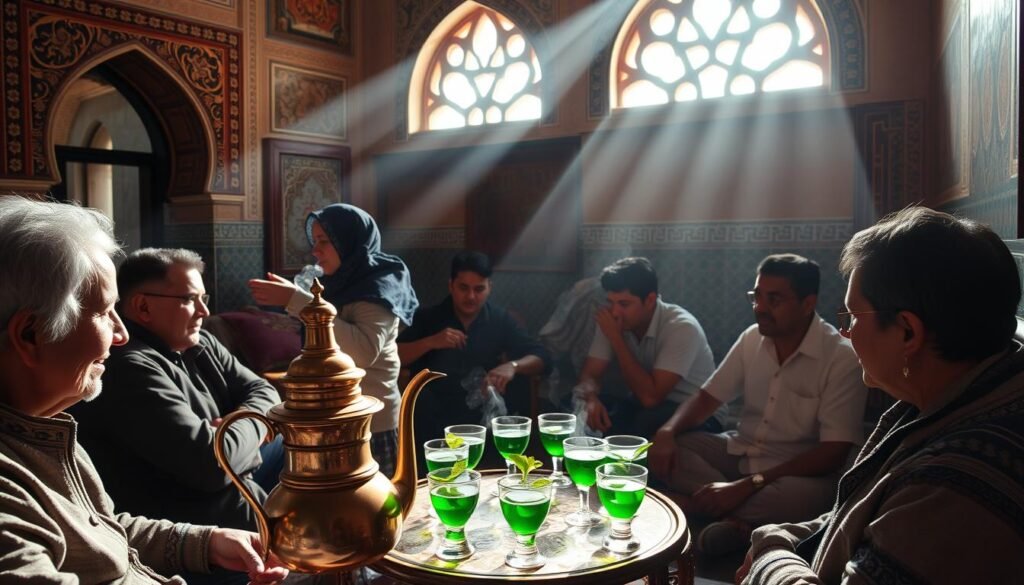
Engaging in this custom allows travelers to delve deeper into Moroccan culture. It’s an opportunity to experience the warmth of local hospitality and build meaningful connections with the people. Whether in a bustling souk or a quiet riad, mint tea is a constant, inviting you to slow down and savor the moment.
Take time to enjoy this relaxing ritual. It’s not just about the tea; it’s about the stories shared, the laughter, and the memories created. Participating in this tradition enriches your journey, making it a truly unforgettable experience.
Conclusion
As we conclude, remember that respecting local customs and avoiding common pitfalls are key to a memorable Moroccan adventure. From negotiating rides to savoring local beverages, every choice enriches your journey. Simple decisions, like staying in a traditional riad or trying a local drink, can deeply impact your experience.
Respecting cultural icons, such as the king, and establishments like local bars, preserves Morocco’s authentic atmosphere. Use these tips as your guide for a safe, enjoyable trip. Embrace the culture, stay mindful, and let Morocco’s beauty leave a lasting impression.

